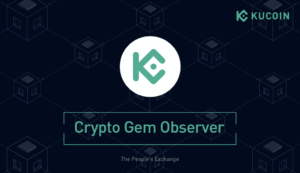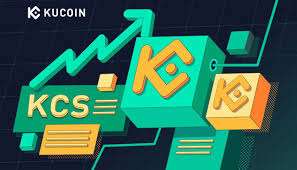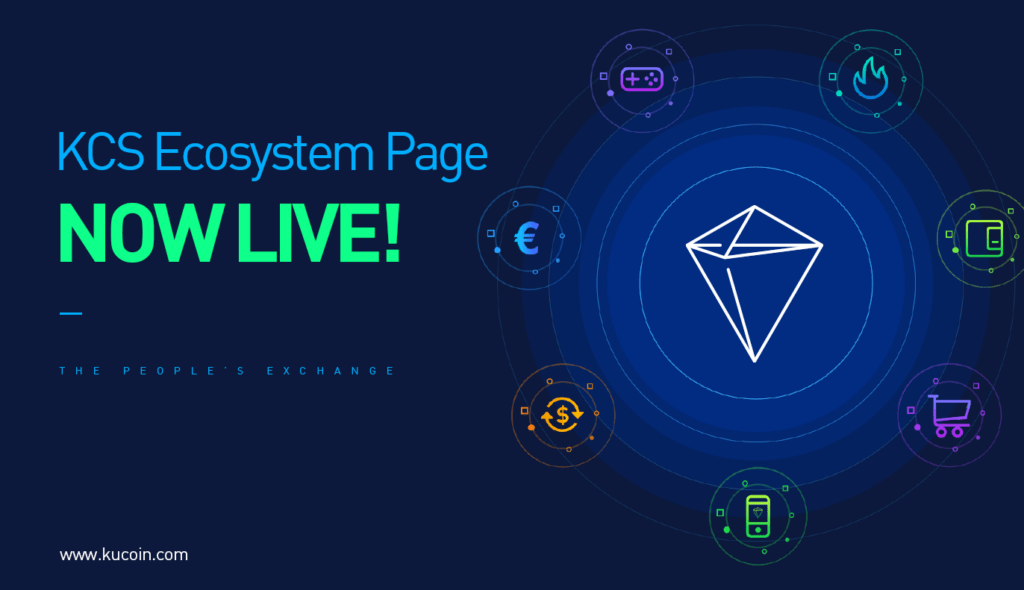Latest News
- Apple Delists 14 Crypto Apps in South Korea Including KuCoin and MEXC Exchanges Amid Regulatory Crackdown
- AWS Outage Disrupts Crypto Exchanges, Raising Questions About Web3’s Centralized Backbone
- Binance and KuCoin traders panic as Amazon Web Service outage halts Crypto withdrawals
- Binance Temporarily Suspends Withdrawals Amid AWS Outage
Current Price
The current price of KCS is $9.88330
Introduction
The KuCoin Token (KCS) has emerged as a significant player in the cryptocurrency landscape since its launch in 2017, primarily serving the needs of the KuCoin exchange.
As a utility token, KCS provides users with various advantages, including reduced trading fees and profit-sharing mechanisms.
Its unique deflationary model, which incorporates a buyback and burn strategy, positions it for potential value appreciation.
However, as the market evolves, it is essential to examine not only the current advantages of KCS but also its broader implications in the rapidly changing crypto ecosystem.
Quick Overview
- KCS is the native utility token of the KuCoin exchange, launched in 2017, and operates on the Ethereum blockchain (ERC-20 standard).
- KCS holders receive trading fee discounts, profit-sharing from exchange revenue, and access to exclusive promotions and token sales.
- The token employs a deflationary model with a buyback and burn mechanism, potentially increasing its value over time.
- KCS offers opportunities for passive income through staking and participation in community voting for token listings.
- Market performance shows volatility, with price trends influenced by broader cryptocurrency dynamics and positive strategic initiatives from KuCoin.

Overview of KuCoin Token
Although the cryptocurrency market is densely populated with various tokens, KuCoin Token (KCS) has established itself as a significant player within the ecosystem. Launched by the KuCoin exchange in 2017, KCS serves as the native utility token of the platform, facilitating a range of functionalities that enhance user experience and engagement.
KCS operates on the Ethereum blockchain, adhering to the ERC-20 standard, which guarantees its compatibility with various wallets and decentralized applications. The token plays a vital role in the KuCoin ecosystem through its integration into the exchange’s incentive structures.
Users holding KCS are afforded benefits such as trading fee discounts, access to exclusive token sales, and participation in trading competitions, effectively promoting a loyalty-driven environment.
Furthermore, the KuCoin Token is subjected to a buyback and burn mechanism, which reduces its circulating supply over time, potentially increasing its value. This deflationary approach aligns with the broader economic principles of scarcity and demand, drawing interest from both retail and institutional investors.
Key Features of KCS
One of the standout features of KuCoin Token (KCS) is its robust utility within the KuCoin exchange ecosystem. KCS serves multiple roles, enhancing the trading experience for users while providing tangible benefits.
One primary function is that KCS holders receive a discount on trading fees, which incentivizes users to utilize the token actively within the platform. This fee reduction can considerably lower the overall cost of trading, making it an attractive option for frequent traders.
Additionally, KuCoin has implemented a profit-sharing mechanism where KCS holders receive a portion of the exchange’s revenue. This feature fosters a sense of community and loyalty among users, as they can benefit directly from the platform’s success.
Moreover, KCS can be used in various promotional events and trading competitions, further increasing its appeal. The token’s liquidity is bolstered by its availability on numerous trading pairs, allowing users to engage with the token in diverse market segments.
In addition, KCS is designed with a deflationary model, as a portion of the tokens is regularly bought back and burned, potentially increasing value over time. Collectively, these features position KCS as a pivotal asset within the KuCoin ecosystem.
Use Cases and Applications
Within the KuCoin ecosystem, KuCoin Token (KCS) serves a variety of use cases that extend beyond mere trading fee discounts. Primarily, KCS acts as a utility token, enabling holders to access enhanced features on the KuCoin platform.
One significant use case is the ability to earn passive income through KuCoin’s staking programs, where users can lock their KCS to earn interest over time.
Additionally, KCS holders are granted voting rights in KuCoin’s token listing process, allowing them to influence which new tokens are introduced on the exchange. This participatory aspect fosters community engagement and aligns the interests of the platform with its user base.
Furthermore, KCS is integrated into various promotional and loyalty programs, offering users opportunities for bonuses and rewards, thereby incentivizing continued use of the platform.
The token also facilitates transactions within decentralized finance (DeFi) projects linked to KuCoin, contributing to its broader utility.
Market Performance Analysis
The market performance of KuCoin Token can be assessed through a thorough analysis of its price trends, trading volume, and market capitalization.
Recent price movements indicate volatility, which may impact investor sentiment and trading strategies.
Additionally, fluctuations in trading volume and market capitalization provide essential insights into the token’s liquidity and overall market positioning.
Price Trends Overview
Analyzing the price trends of KuCoin Token reveals considerable fluctuations influenced by various market dynamics. Since its inception, KCS has experienced periods of rapid appreciation, often driven by the overall bullish sentiment in the cryptocurrency market. Remarkably, KCS reached its all-time high in mid-2021, coinciding with increased trading activity and broader market adoption of cryptocurrencies.
However, the price trajectory has also been marked by substantial corrections. These declines often correlate with external factors, such as regulatory developments, macroeconomic conditions, and shifts in investor sentiment. For instance, during bearish phases in the market, KCS has demonstrated volatility, reflecting the token’s sensitivity to broader trends affecting cryptocurrencies.
Moreover, the introduction of new features or changes within the KuCoin platform can considerably impact KCS’s value. The token’s price is also sensitive to trading patterns exhibited by investors, influencing short-term movements.

Trading Volume Insights
Notable fluctuations in trading volume have characterized the market performance of KuCoin Token (KCS), reflecting investor interest and market activity. Analyzing the trading volume reveals a strong correlation between price movements and the levels of trading activity. Periods of heightened trading volume often coincide with notable price surges or declines, indicating that trader sentiment can influence market dynamics considerably.
In recent months, KCS has experienced multiple spikes in trading volume, largely driven by market events, platform developments, or broader crypto market trends. For instance, announcements regarding new partnerships or updates to the KuCoin platform have resulted in increased trading activity, suggesting that investor sentiment is highly responsive to news related to the token’s ecosystem.
Moreover, the distribution of trading volume across various exchanges indicates that KuCoin remains a pivotal platform for KCS trading, contributing notably to its liquidity. However, it is essential to take into account that fluctuations in volume can also lead to volatility in price, as a sudden increase in selling pressure may result in sharp declines, while a surge in buying interest can propel prices upward.
Market Capitalization Status
Evaluating the current market capitalization status of KuCoin Token (KCS) reveals a multifaceted picture of its market performance. As of October 2023, KCS holds a significant position within the cryptocurrency ecosystem, with a market capitalization that consistently places it among the top-tier tokens. This valuation reflects not only investor confidence but also the growing utility of KCS within the KuCoin platform.
The market capitalization of KCS is indicative of its liquidity and potential for price stability. As trading volumes show a robust upward trend, the token’s market cap illustrates its resilience against market volatility.
Moreover, the strategic initiatives undertaken by KuCoin, such as the expansion of its services and user base, contribute positively to the token’s perceived value.
Additionally, the ongoing efforts to enhance KCS’s utility—ranging from staking rewards to discounted trading fees—moreover solidify its appeal.
However, potential investors must consider the inherent market risks, including regulatory challenges and competitive pressures.
Benefits of Holding KCS
Holding KuCoin Shares (KCS) presents several compelling advantages for investors looking to maximize their engagement with the KuCoin exchange. As a utility token, KCS offers various benefits that can enhance the trading experience and potentially increase profitability for holders.
- Reduced Trading Fees: KCS holders can enjoy discounted trading fees on the KuCoin platform. This reduction can lead to significant savings, especially for frequent traders.
- Passive Income through Staking: KuCoin allows KCS holders to earn passive income by participating in its staking program, where users can lock their tokens and receive rewards.
- Token Burn Mechanism: KuCoin employs a token burn strategy, periodically reducing the total supply of KCS. This reduction can create scarcity, potentially increasing the token’s value over time.
- Participation in Special Events: KCS holders often gain access to exclusive trading events, promotions, and token sales, providing them with unique investment opportunities that are not available to non-holders.
These advantages highlight the strategic value of holding KCS, making it an attractive option for both active traders and long-term investors.
Future Outlook for KCS
The future outlook for KuCoin Shares (KCS) appears promising, driven by several key factors that could influence its value and utility in the cryptocurrency market.
First, KuCoin’s expanding user base and increasing trading volume indicate a growing demand for KCS, which could elevate its market position. The exchange’s commitment to innovation, including the enhancement of its platform and the introduction of new trading features, may further attract users and boost KCS adoption.
Additionally, the ongoing development of decentralized finance (DeFi) and non-fungible tokens (NFTs) presents new opportunities for KCS integration within these ecosystems. As KuCoin continues to explore and expand these avenues, the utility of KCS could increase, enhancing its value proposition for investors.
Moreover, KuCoin’s buyback and burn mechanism serves as a deflationary measure, which could positively impact KCS’s price over time.
However, investors should remain vigilant about regulatory developments and market volatility, as these factors could pose risks to KuCoin’s growth trajectory.

Frequently Asked Questions
How Can I Purchase Kucoin Token (Kcs)?
To purchase a cryptocurrency, first select a reputable exchange that supports the desired token. Create an account, complete any necessary verification, deposit funds, and execute a trade for the specified token through the platform’s trading interface.
Is KCS Available on Other Exchanges?
Yes, certain cryptocurrencies are often available on multiple exchanges beyond their native platforms. It is advisable to research various trading platforms to identify the availability, liquidity, and trading conditions associated with the specific token of interest.
What Wallets Support Kucoin Token (Kcs)?
Various wallets support KuCoin Token (KCS), including hardware wallets like Ledger and Trezor, as well as software wallets such as Exodus and Trust Wallet. These options provide secure storage and easy access for token management.
Are There Any Risks Associated With Holding Kcs?
Holding any cryptocurrency involves inherent risks, including market volatility, regulatory changes, and potential security vulnerabilities. Investors should conduct thorough research and consider their risk tolerance before engaging in any cryptocurrency investment.
Can I Earn Rewards by Staking Kcs?
Yes, staking certain cryptocurrencies can yield rewards. Participants typically earn a portion of transaction fees or newly minted tokens as incentives for locking their assets, thereby contributing to network security and liquidity. Specific terms vary by platform.
Wrapping Up
To summarize, KuCoin Token (KCS) presents a compelling utility within the KuCoin exchange ecosystem.
Its deflationary model, characterized by a buyback and burn mechanism, positions KCS for potential value appreciation.
The diverse use cases, including trading fee discounts and profit-sharing opportunities, enhance its attractiveness to users and investors alike.
As adoption increases and integration within decentralized finance and NFTs expands, KCS may solidify its role as a significant player in the cryptocurrency market.

